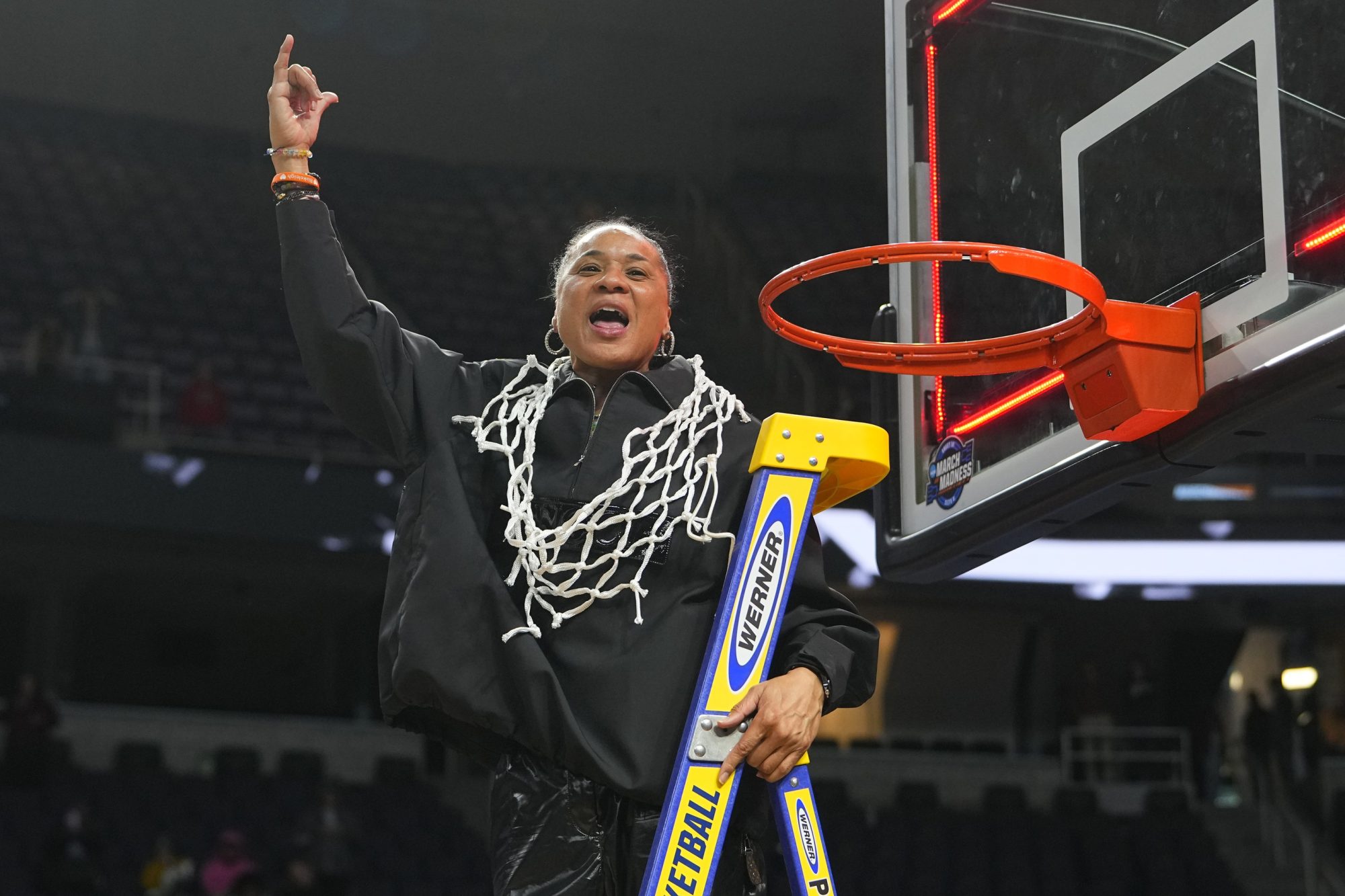Changes could be coming to women’s March Madness after a blockbuster tournament this spring.
Lynn Holzman, the NCAA executive who oversees the tournament, told ESPN Tuesday that she supports moving up a review of the women’s tournament format to this summer. The review was originally scheduled for next summer.
“Given the trajectory of success we’ve experienced over the last couple years, I see no reason to wait to start that review,” Holzman told ESPN. “The governance structure has to approve [a review], but that is our ask coming out of this championship. I believe that will take place.”
Right now, the First Four and first two rounds of the women’s tournament are played at the highest seed’s gym, and games the next weekend are split between two neutral sites. That’s different from the men’s format in which all games are in neutral territory and second-weekend games touch down in four cities.
“I think both of those topics indicate our continued intention to evolve and grow our championship in a way that creates value and also provides a great experience for our fans and student-athletes,” Holzman said on a Front Office Sports panel before the tournament.
The current format created issues in Spokane over the first weekend. The city was already a host site for the men and set to host a large youth volleyball tournament the same weekend by the time Gonzaga earned its spot as a women’s host site. Hotels were full, so the NCAA permitted Gonzaga to place teams about 30 miles away in Idaho, where Utah’s traveling party experienced racial abuse.
Another major difference between the tournaments is that the women’s Final Four is typically played in a basketball arena, while the men’s is played in a much larger football stadium. While the cozier hoops arenas are arguably a better environment for players and fans, in recent years, the relatively limited supply of women’s tickets—football stadiums typically fit double or triple the amount of people—has made women’s tickets more expensive. Holzman did not specify whether moving the tournament to a football stadium would be part of the review.
The NCAA conducted a gender equity review in 2021 after players raised awareness of the differences between the two tournaments, and the governing body has increased its spending by $14 million per year on the women’s tournament, per an NCAA spokesperson.
Holzman told ESPN that the other issues in the women’s tournament this year, such as the three-point line mismeasurement and a referee having a conflict of interest and being pulled mid-game, were not specific to the women’s side. The company putting in the court and process to vet officials are the same for both tournaments, and the budget for refs is equal since the 2021 review, she said.





![[Subscription Customers Only] Jul 13, 2025; East Rutherford, New Jersey, USA; Chelsea FC midfielder Cole Palmer (10) celebrates winning the final of the 2025 FIFA Club World Cup at MetLife Stadium](https://frontofficesports.com/wp-content/uploads/2026/02/USATSI_26636703-scaled-e1770932227605.jpg?quality=100&w=1024)











